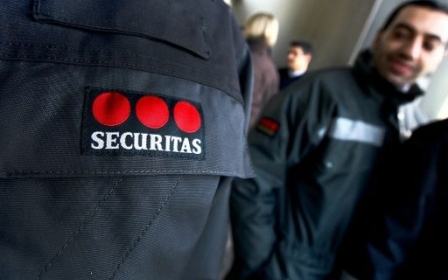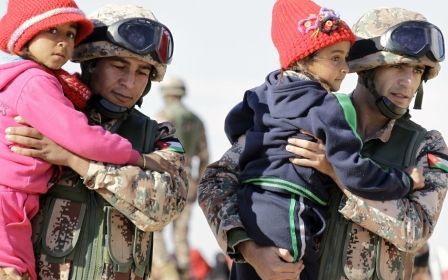EU pushes Greece on migrant crisis

The EU piled more pressure on Greece on Wednesday, telling Athens to improve conditions for refugees so that other overstretched member states can send people back there.
Brussels also hit out at European Union members for dragging their heels on easing the refugee burden for Greece and Italy, with just 479 out of a planned 160,000 people relocated to other states so far.
And it urged Turkey too to live up to a deal struck last year to crack down on the flow of largely Syrian refugees to Europe, the continent's biggest migration flow since the Second World War.
More than 52,000 refugees crossed the eastern Mediterranean from Turkey during January, more than 35 times as many as attempted the crossing in the same month of 2015, according to the International Organisation for Migration. More than 250 people died during the treacherous crossing.
But in its state-of-play report on the migration crisis ahead of an EU summit next week, the European Commission - the 28-nation bloc's powerful executive - reserved its harshest criticisms for debt-stricken Greece.
The EU's Dublin regulations on migration say people must apply for asylum in the country where they first land.
But that system has been thrown into chaos by the conditions in Greece and the fact many asylum-seekers do not want to stay there.
A ruling by the EU's top court in 2011 at the height of Greece's debt crisis said conditions for asylum-seekers in Greece were degrading, meaning that other countries could not send them back there.
Migration rules 'not dead'
"There are still key areas in the asylum process that need to be improved before the Dublin regulation can be fully applied to Greece again, notably in the areas of reception capacity and conditions, access to the asylum procedure, appeals and legal aid," the Commission said.
EU states are due next month to debate changes to the Dublin rules to allow for a more coherent system as asylum-seekers land first in Italy and Greece but prefer to travel on to Germany and other northern European countries.
"Dublin is not dead. We keep it alive as long as we need to start its revision. But for now it is functioning," EU Migration Commissioner Dimitris Avramopoulos said.
It adds to the pressure on Greece just a week after Brussels urged Athens last week to reinforce its external borders, the gateway to Europe for most of the asylum seekers from Syria and other countries.
Brussels has raised the possibility of a two-year suspension of border controls in the passport-free Schengen travel area if Greece does not bring its response up to scratch.
Italy, Turkey criticised
Both Italy and Greece meanwhile faced criticism in the report for being too slow to bring in the new "hotspot" reception centres to fingerprint and register new arrivals.
The criticism is sure to anger Italian Prime Minister Matteo Renzi, who on Wednesday compared the EU to a sinking ship.
Avramopoulos said meanwhile he had written to EU interior ministers on Wednesday with a "clear and strong message" to accelerate the redistribution of migrants under a deal agreed last September.
"The results are very poor. So right now we have to step up our efforts for all member states to do their part," he said.
The Commission said it had proposed suspending a third of the relocations that Austria is meant to take in a bid to take pressure off Vienna.
The relocation scheme has been championed by European Commission chief Jean-Claude Juncker, but many member states are reluctant to go ahead with it despite agreeing to it last year.
The EU has also pinned high hopes on the deal it signed in November with Turkey, the main launching post or migrants to Europe, to cut migrant numbers in exchange for three billion euros ($3.2 billion) in aid and faster EU membership talks.
But Avramopoulos reiterated concerns that Ankara is neither properly curbing the flow nor taking back economic migrants who do not qualify as refugees.
"If Turkey is not committed, and does not start to deliver according to what we agreed, it will be very difficult to manage the situation," Avramopoulos said.
New MEE newsletter: Jerusalem Dispatch
Sign up to get the latest insights and analysis on Israel-Palestine, alongside Turkey Unpacked and other MEE newsletters
Middle East Eye delivers independent and unrivalled coverage and analysis of the Middle East, North Africa and beyond. To learn more about republishing this content and the associated fees, please fill out this form. More about MEE can be found here.




